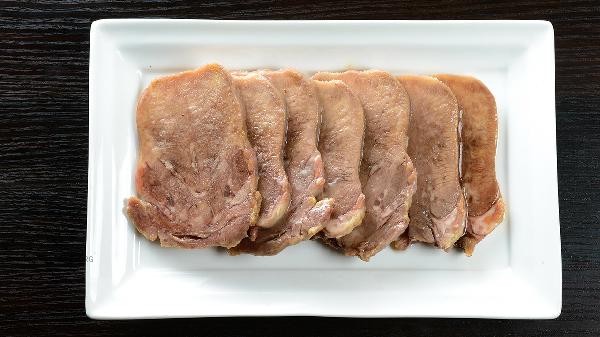The fishy smell of pork may be caused by residual blood, feed composition, improper storage, processing methods, variety differences, and other factors. It can be improved by soaking to remove fishy smell, blanching, seasoning and pickling, low-temperature acid removal, and purchasing through regular channels.

1. Residual Blood
If pork is not fully bled after slaughter, the residual blood in the muscle tissue will oxidize and produce a fishy smell. It is recommended to soak the meat chunks in clean water before cooking, and change the water multiple times in the middle to help separate the blood. Some vendors will add water to increase weight, and this type of pork has a more pronounced fishy smell and loose flesh.
2. Feed Composition
If pigs consume feed containing fishmeal, animal organs, and other strong fishy odors for a long time, their meat is prone to develop an unpleasant odor. Scattered pig farming may consume plants with special odors due to their complex food sources. In contrast, pork fed with grains has a lighter fishy smell, and you can check the quarantine mark when purchasing.
3. Improper storage
When pork is stored at room temperature for more than two hours, bacteria can break down protein and produce ammonia based odorous substances. If frozen meat is repeatedly thawed, the oxidation of cell rupture and exudate will exacerbate the fishy smell. It is recommended to pack and freeze after purchase, and slowly thaw in the refrigerator during thawing.

4. Processing Method
If the hygiene conditions of traditional slaughterhouses are not up to standard, cross contamination of cutting tools and cutting boards will aggravate the fishy smell. Part of the pork has not been acidified, and the accumulation of lactic acid in the muscles leads to a sour and fishy smell. After 24 hours of souring, the fishy smell of regular fresh meat is significantly reduced.
5. Variety Differences
Male pigs have a stronger fishy smell than female pigs, especially adult male pigs that have not been castrated. Hormones such as testosterone in their bodies can produce a strong odor. Local breeds such as black pigs have a longer growth cycle, higher intramuscular fat content, and lower perception of fishy smell compared to rapidly bred white pigs.

When processing pork, it can be soaked in rice washing water or light salt water first, and then blanched with ginger slices and cooking wine to effectively remove fishy smell. When cooking, pair with spices such as star anise and cinnamon, or use acidic substances such as lemon juice and hawthorn to tenderize the meat. It is recommended to choose fresh meat with a bright red color, good elasticity, and no odor, and avoid purchasing meat products with a sticky or bleeding surface. Daily storage should be sealed and refrigerated, consumed as soon as possible, and frozen for no more than three months.








Comments (0)
Leave a Comment
No comments yet
Be the first to share your thoughts!